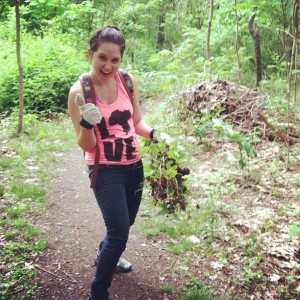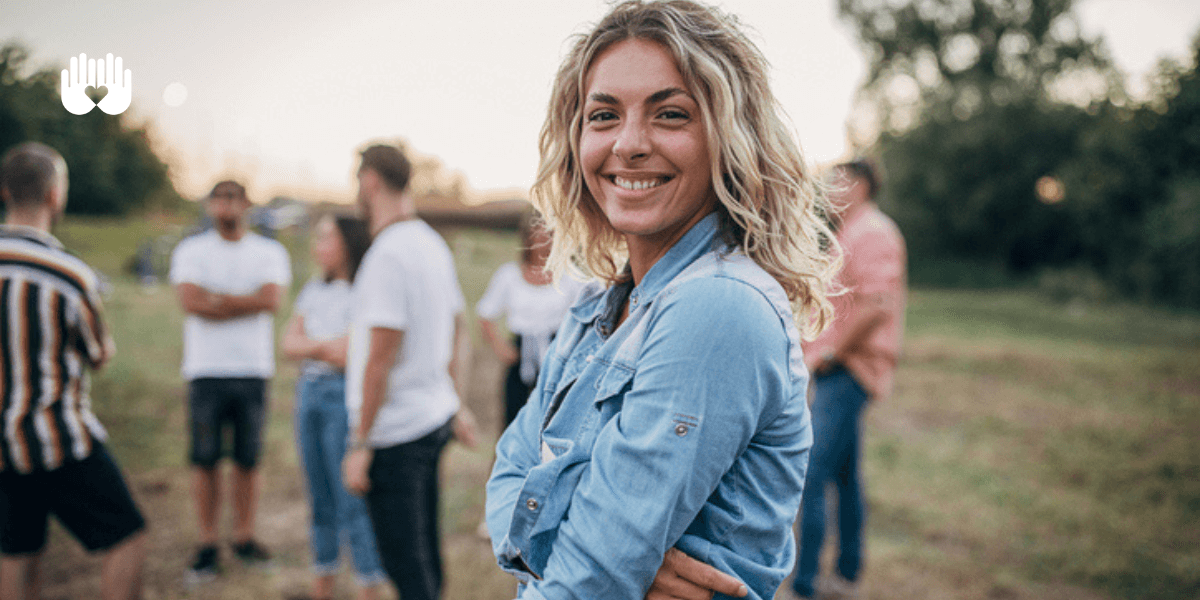
Dylan volunteering in Boston, Mass.
This post should really be called: “How I learned more about my community and humanity once I stepped outside my college classroom.” You see, going to college in the heart of a city has an abundance of advantages, and many students are quick to take a big gulp of all the opportunities presented by the fast-paced, busy, and unique city landscape.
While internship opportunities, professional networking events for soon-to-be post grads, company hosted events at local restaurants and bars, and higher education possibilities are readily available and most likely taken advantage of by eager 20-somethings, taking time to volunteer at the many nonprofit social/environmental justice organizations, homeless shelters, advocacy centers, philanthropic fundraisers, local schools and child care facilities that complete the city of Boston are not always at the forefront of young people’s minds while navigating through their college experiences.
But, with a little push from student organizations, local nonprofits and passionate individuals, volunteerism and community change can start to take a front seat and become not just an opportunity, but also a priority in the lives of young people.
Volunteerism, civic engagement and advocacy are the driving forces for creating change and making a positive impact in your community and society at large. While gaining internship and job experience can lead to community impact and social change, it’s important for us to remember that before we start advocating for change and informing others about issues we care about, we need to fully understand the complexity and depth of the social, environmental, or economic issue we are passionate about.
Not only do we need to understand the ‘issue’ or ‘societal problem’ that many people face and are impacted by every day, but we need to meet and work alongside those whose daily realities are shaped by injustices, while not creating any divides or barriers in the process. Everyday people are affected by the issues that organizations fight for or against, and once we realize how people-centered things like advocacy, outreach and service are, I believe young people will realize their call to action and their potential in their local landscapes to really affect change.
My Experience

For example: Recently I had a very unique volunteer gig. A few times a semester I would take the Red Line to Quincy to volunteer at the Prison Book Program, where I would read letters from incarcerated individuals from all over the country and find 2-3 books that match their interests and reading criteria. Opening each letter and hearing people’s stories reminded me of the harsh realities of our world today, and the difficulty many people face in preserving their human dignity and self-worth.
(Left. Dylan volunteering in Boston, Mass.)
Whether guilty of crimes or innocent, our incarceration system is an issue that many activists rally around in terms of its success and promise in correcting and rehabilitating criminal behavior. So, to read letters and hear the voices of those who are living on the marginalized edges of our society, but who rarely have a voice in the issue that’s being nationally rallied around, is an uncommon circumstance that should be noted and have more attention and action drawn to. Their desire to educate themselves within the confines of a prison wall is real and heard by those of us who take time to spend their weekday evenings in the bottom of a church basement, sorting through donated books, and reading literary wish-lists of those who are incarcerated.
Another meaningful experience that sticks out to me is when I regularly volunteered at a children’s homeless shelter in Roxbury, Mass. for two years, and was reminded of the fact that the statistics we hear every day about homelessness are real people – not just numbers. Every child I played alongside, made a puzzle with, and created art work for, reminded me that the largest percentage of people who are homeless is in fact, not the men people see on the street who are waiting in line for the soup kitchen, but families: Mothers, children of all ages, infants, and fathers.
I was reminded that every human and every family deserves a place to call a home, a place to grow up, and a place to feel safe and comfortable. Helping the shelter to provide an afternoon of safety, comfort, respect, and joy for children who don’t have a home or much stability was a small but meaningful contribution to a much greater familial and societal obstacle.
What I Learned
I learned from my volunteer experiences in Boston that people are not powerless; in fact, we have a great deal of power and potential, despite sometimes being told we may not have any because of the zip code we were born in, economic status, family life, sexual orientation, or employment status. Through the volunteering I made as a priority and a cornerstone of my life in college, I learned how empowering it is to realize how much agency you have in your own life and how beautiful it is to share that with others in hopes of them discovering it themselves.
I learned how giving human beings are, even when they don’t have much to give. I learned how one of the biggest equalizers of our society is storytelling and the sharing of self. We open countless doors of understanding, compassion, education, and empathy when we let the chaos and speed of the cityscape subside, and take time to actively listen and communicate with our community members. Our community is a diverse fabric of human beings, and we all have a voice in enacting change, improving the lives of our neighbors, and promoting a more just and verdant world.
I learned that local nonprofit organizations have the potential to amplify their outreach to colleges, and young people in general, through matching passions with skills. You as organizations need to purposefully identify for us why promoting service and civic engagement is not only important, but necessary if we want to improve our lives, the lives of others, and the dilemmas and misfortunes our world faces every day.
The relationship between young people and nonprofits can be the start of a significant change in our community, and should be a reciprocal and powerful educational experience. An open-minded and encouraging flow of communication between organizations and community members can be the launchpad for the social and environmental change organizations talk about and try for every day. Together, we can make change – not just a semblance of idealism, but reality, as well.
How does your organization engage with college students and young adults? Share what you’ve learned in the comments!
Dylan Manderlink is a recent graduate of Emerson College in Boston, Mass., who with a self-designed major, Investigative Theatre for Social Change. She is now a Teach for America corps member, teaching high school in rural Arkansas. She is passionate about working in the nonprofit sector and providing educational opportunities for students to creatively inform themselves and others about social justice, community change and human r




